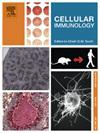间充质干细胞衍生外泌体(msc -exosome)在血液学中的应用:从机制到临床突破
IF 2.9
4区 医学
Q2 CELL BIOLOGY
引用次数: 0
摘要
间充质干细胞(MSCs)提供了有希望的治疗方法,因为它们调节免疫系统并帮助修复组织。然而,诸如低细胞存活率、免疫排斥和与临床使用相关的伦理问题等挑战限制了它们的广泛应用。为了克服这些限制,msc衍生外泌体(MSC-EXOs)已成为一种创新且有前途的无细胞治疗策略。msc - exo是由msc释放的纳米级细胞外囊泡,其携带多种生物活性分子,包括蛋白质、脂质和核酸。它们与间充质干细胞有许多共同的好处,包括免疫调节、抗炎作用和组织修复。msc - exo通过调节肿瘤微环境、抑制肿瘤生长和增强常规疗法的疗效,显示出治疗潜力。它们可以特异性靶向细胞,传递治疗药物,诱导癌细胞凋亡。此外,msc - exo可以调节免疫反应,促进造血恢复,减轻治疗相关的副作用。虽然msc - exo是一种很有前景的治疗方法,但仍存在一些挑战,包括分离和表征方法的标准化,了解其作用机制,以及确保安全性和有效性。尽管存在这些挑战,但基于msc - exo的血液学治疗的未来是有希望的。持续的研究工作对于解开外泌体的复杂生物学,识别新的生物标志物和开发创新的治疗策略至关重要。通过利用msc - exo的力量,我们可以彻底改变血液病的治疗方法并改善患者的预后。本文章由计算机程序翻译,如有差异,请以英文原文为准。
“Mesenchymal stem cell-derived exosomes (MSC-exosomes) in hematology: From mechanisms to clinical breakthroughs”
Mesenchymal stem cells (MSCs) offer promising therapy because they regulate the immune system and help repair tissues. However, challenges such as low cell survival rates, immune rejection, and ethical concerns related to their clinical use have limited their widespread application. To overcome these limitations, MSC-derived exosomes (MSC-EXOs) have emerged as an innovative and promising cell-free therapeutic strategy. MSC-EXOs are nanosized extracellular vesicles released by MSCs that carry a diverse array of bioactive molecules, including proteins, lipids, and nucleic acids. They share many benefits with MSCs, including immune regulation, anti-inflammatory effects, and tissue repair. MSC-EXOs demonstrate therapeutic potential by modulating the tumor microenvironment, suppressing tumor growth, and enhancing the efficacy of conventional therapies. They can specifically target cells, deliver therapeutic agents, and induce apoptosis in cancer cells. Additionally, MSC-EXOs can modulate the immune response, promote hematopoietic recovery, and alleviate treatment-related side effects. While MSC-EXOs present a promising therapeutic approach, several challenges remain, including the standardization of isolation and characterization methods, understanding their mechanisms of action, and ensuring both safety and efficacy. Despite these challenges, the future of MSC-EXO-based therapies in hematology is promising. Continued research efforts are essential to unravel the intricate biology of exosomes, identify novel biomarkers, and develop innovative therapeutic strategies. By harnessing the power of MSC-EXOs, we can revolutionize the treatment of hematological diseases and improve patient outcomes.
求助全文
通过发布文献求助,成功后即可免费获取论文全文。
去求助
来源期刊

Cellular immunology
生物-免疫学
CiteScore
8.20
自引率
2.30%
发文量
102
审稿时长
30 days
期刊介绍:
Cellular Immunology publishes original investigations concerned with the immunological activities of cells in experimental or clinical situations. The scope of the journal encompasses the broad area of in vitro and in vivo studies of cellular immune responses. Purely clinical descriptive studies are not considered.
Research Areas include:
• Antigen receptor sites
• Autoimmunity
• Delayed-type hypersensitivity or cellular immunity
• Immunologic deficiency states and their reconstitution
• Immunologic surveillance and tumor immunity
• Immunomodulation
• Immunotherapy
• Lymphokines and cytokines
• Nonantibody immunity
• Parasite immunology
• Resistance to intracellular microbial and viral infection
• Thymus and lymphocyte immunobiology
• Transplantation immunology
• Tumor immunity.
 求助内容:
求助内容: 应助结果提醒方式:
应助结果提醒方式:


